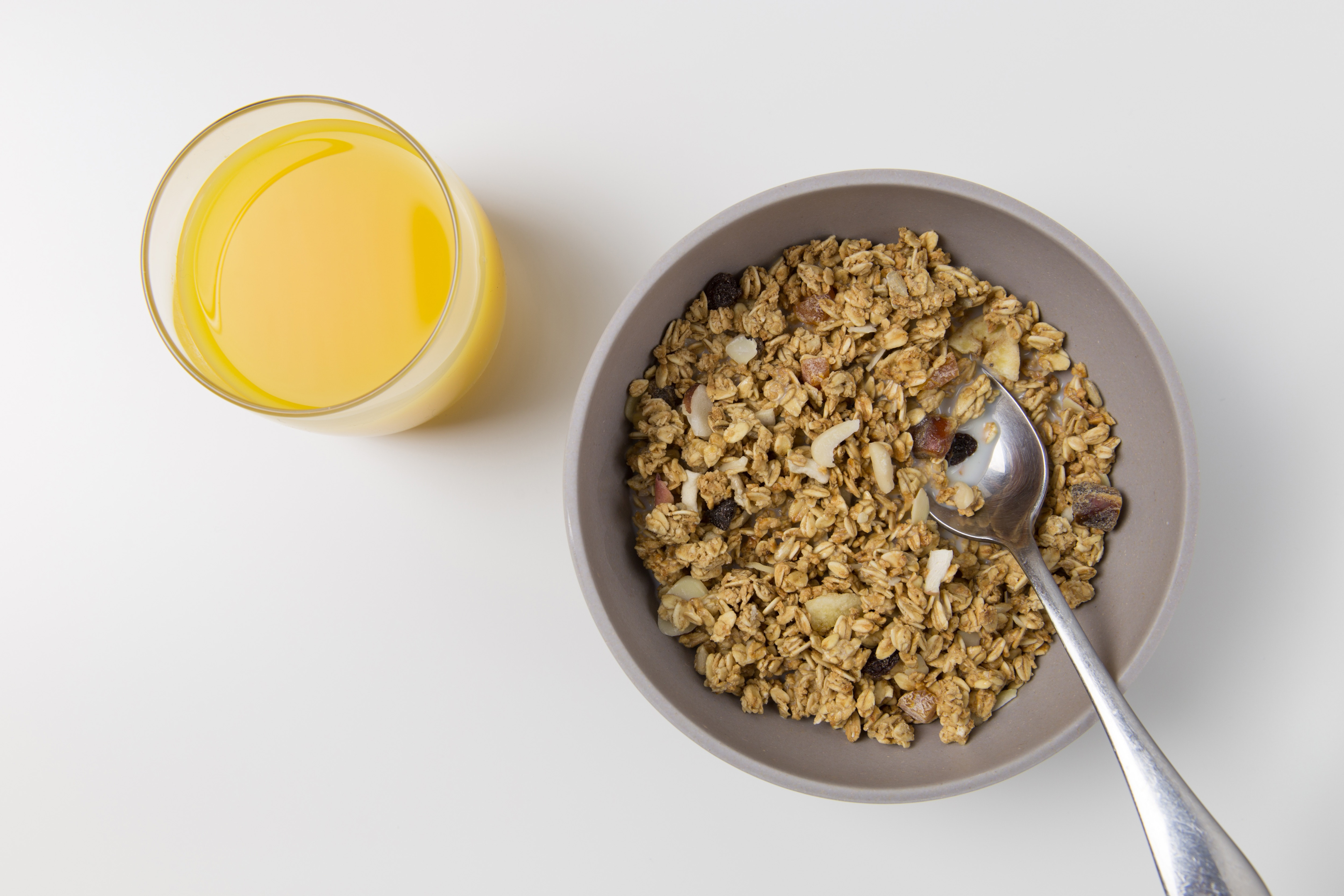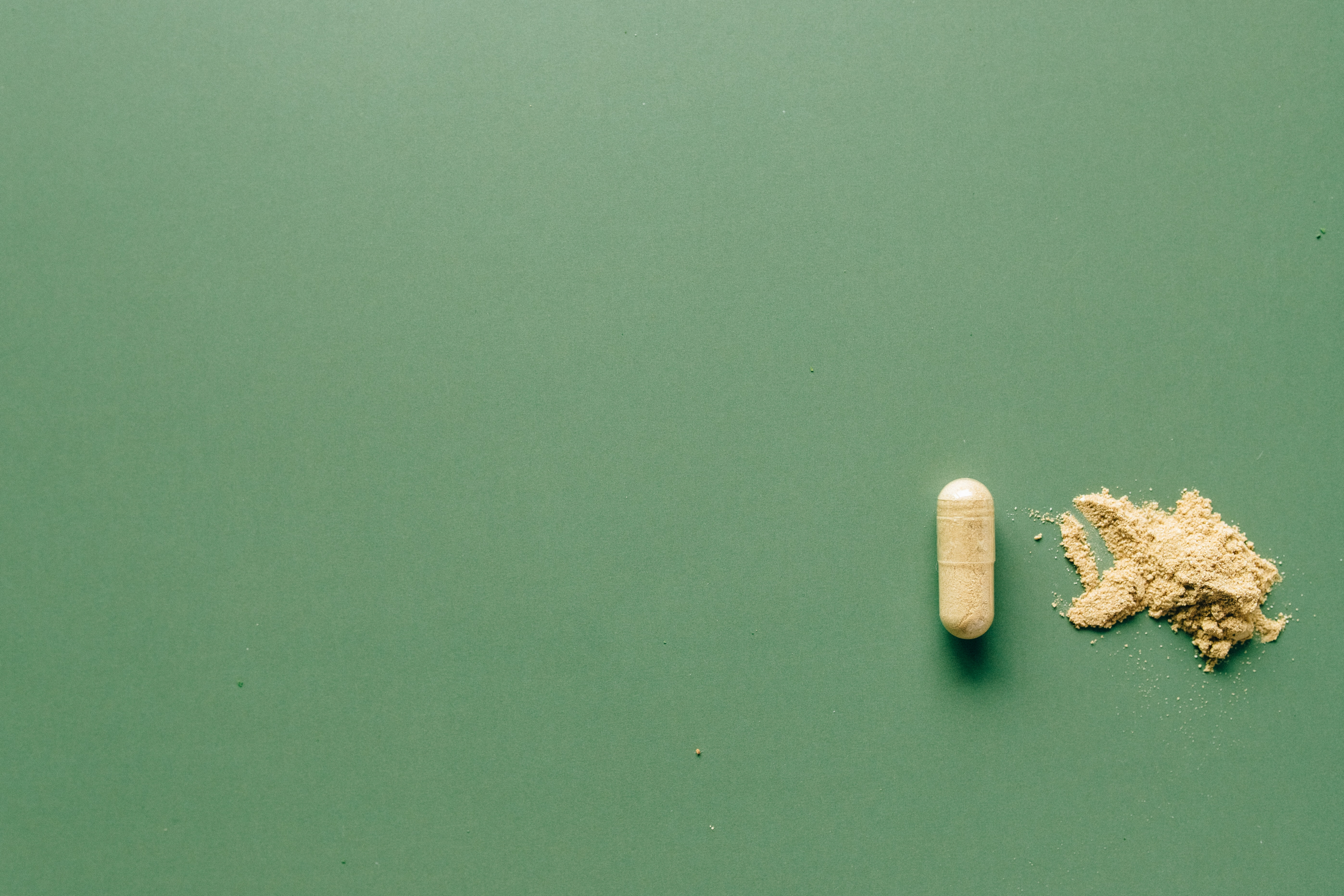Are you feeling weighed down by the discomfort of irregular bowel movements?
You're not alone! Chronic constipation, a common digestive woe, affects millions of people worldwide.
From feeling bloated and sluggish to experiencing abdominal pain, it can put a real damper on your day. But fear not!
The good news is that there's a solution at hand – and it exists in the form of oral supplements.
There are countless supplements out there that can help you with this clogged-up tummy problem, but we’ll spare you the tiring effort of trial and error of finding the best supplement for regular bowel movements.
Here's an excerpt of the supplements for constipation that we'll be talking in this insightful guide:
-
Magnesium Supplements
-
Fiber Supplements
-
Carnitine
-
Senna
-
Aloe Vera
-
Vitamin C
-
Castor Oil
Oral supplements for constipation are the best course of action to prevent it from happening, and it’s great for preventing problems like IBS, IBD, and bloating.
In this article, we'll delve into the ins and outs of constipation, its causes, and how the right supplement can be your knight in shining armor to help you achieve a smooth-sailing digestive system.
So buckle up, because we're about to unveil the secrets to keeping your gut happy, healthy, and in perfect harmony!
Table of Contents
- Constipation Signs - What Are They?
- Types of Supplements For Constipation Relief
- Probiotics - Nourishing The Gut Microbiota
- Laxatives - Unlocking The Blocked Paths
- Fiber Supplement - Food For Your Gut
- The Best Supplement For Regular Bowel Movement - Top Picks
- Probiotic Supplements
- Magnesium Supplements
- Fiber Supplements
- Carnitine
- Senna
- Aloe Vera
- Vitamin C
- Castor Oil
- Do Oral Supplements Really Work?
- Cases Where Dietary Supplements Won’t Work
- Supplements That Can Cause Constipation
- When To Seek Medical Help
- The Bottom Line
Constipation Signs - What Are They?

Constipation is a problem that is quite common in all age groups, especially here in the US. Roughly 33% of all adults, aged 60 and above, suffer from constipation in a variety of different forms.
Constipation is caused by a variety of different factors, an excerpt of which includes:
-
Age - Constipation is more common in older adults
-
Fiberless diet - A diet low in fiber can lead to slower stools
-
Dehydration - Water helps lubricate your stools, helping bowel movements be more fluid and frequent.
-
Stress - The gut-brain axis makes stress a leading cause of problems like IBS(Irritable Bowel Syndrome), bloating, constipation, and more.
-
Traveling - Travel constipation is a frequent problem that occurs when there’s a major diet change in your body
-
Medications - Certain medications, like antibiotics and others, can have constipation as a side effect.
Some common symptoms of constipation include infrequent bowel movements (like POOP, please!), difficulty or straining during bowel movements, feeling like you haven't completely emptied everything out, abdominal discomfort or bloating, and even nausea.
While no one wants to sit and stew in their own discomfort, there are a variety of options to help alleviate constipation besides the supplements we’ve discussed later in this guide - which range from drinking more water to trying out different foods to even getting your body moving with daily exercise.
Types of Supplements For Constipation Relief
As we mentioned before, there are a lot of different things that you can do for constipation relief. The world surely has progressed a lot when it comes to gut health and taking care of the digestive system.
That being said, there are three supplement types that you’ll often find yourself choosing between.
Probiotics - Nourishing The Gut Microbiota
Did you know that your gut is home to trillions of beneficial bacteria that play a crucial role in digestion and overall gut health?
When this delicate balance of gut bacteria is disrupted, it can lead to constipation and other digestive issues.
Probiotic supplements are packed with live beneficial bacteria that can help restore the natural balance of your gut microbiome, supporting healthy bowel movements. Check out the probiotic supplements that we have in store, and get rid of your digestive tract issues starting today.
Laxatives - Unlocking The Blocked Paths
Laxatives are one of the most commonly used supplements for relieving constipation. They work by stimulating bowel movements, softening stool, and helping to ease the passage of waste through the intestines.
From gentle, over-the-counter options to stronger prescription medications, there are various types of laxatives available, including stimulant laxatives, osmotic laxatives, bulk-forming laxatives, and lubricant laxatives.
Though, we recommend using natural laxatives if you’re thinking of daily usage, as most laxatives, when used over a long period of time, can bring about consequences to your health.
Fiber Supplement - Food For Your Gut
Many of us don't get enough fiber in our diets, resulting in constipation and issues in digestive health. Fortunately, there are a variety of supplements that can help boost your daily intake and provide an efficient path to regularity!
Some of the most common fiber supplements you’ll find, in the constipation health niche, are psyllium husk and methylcellulose. In fact, psyllium husk is an integral part of IBSupport by Gistive, which helps normalize your stool frequency.
The Best Supplement For Regular Bowel Movement - Top Picks
Now that we’re done with the pleasantries, it’s time to get down to the real reason why you’re here.
There are a lot of supplements, medications, herbs, and whatnot that can help you get things moving in your gut. But knowing what the best thing for your digestive system is half the job, and we’re making that process easier by filtering the best supplements for regular bowel movements.
Probiotic Supplements

Over the past few years, various types of research have been made on artificially synthesized good gut bacteria, aka probiotic supplements, and demise in problems like IBS, constipation, and more.
In general, probiotics are live bacteria and yeasts that help to maintain a healthy balance of microorganisms in your gut. Without this balance, your digestive system can become sluggish or experience other problems.
By taking probiotic supplements, you can introduce healthy bacteria into your gut, which can improve digestion and promote regular bowel movements. The best thing is that they’re readily available in the form of pills, and just 1 a day can start making you more regular in the bathroom.
Check out our probiotic products, IBSupport and Restore Probiotic, that can help you fight against problems like constipation, and get those frequent trips to the bathroom back.
Fun fact : IBSupport is filled with more than 7 different superfoods, which include both insoluble and soluble fiber, both of which help prevent constipation, bloating and more.
Magnesium Supplements

Magnesium is essential for our bodies to have regular bowel movements, as it helps to keep the digestive system healthy. It helps regulate the contraction and relaxation of muscles in the digestive tract, which allows food to pass through more effectively.
Magnesium supplements are a great way to help with regular bowel movements as they provide our bodies with an extra source of this essential mineral. Magnesium supplements come in both pill form and liquid form, making them easy to take on a daily basis if needed. Though, if you have a problem ingesting capsules, these supplements also come in the form of liquid medicine..
When it comes to choosing the best magnesium supplement for regular bowel movements, we’ve seen magnesium citrate work best, as the citric acid is highly effective whilst having a calming effect on the mind and the gut.
Fiber Supplements

Fiber is a key part of achieving regular bowel movements as it absorbs water and increases bulk and moisture in the stool, making it easier to pass. It decides how quickly food passes through the digestive system and allows for more efficient digestion.
Additionally, fiber provides the added benefit of promoting healthy bacteria growth in the gut, which is important for proper digestion.
There are two types of dietary fiber that you need to keep in mind; soluble and insoluble.
Soluble fiber helps to slow down digestion, allowing nutrients to be absorbed by the body more effectively. On the other hand, insoluble fiber adds bulk to stool, stimulating regular bowel movement and preventing constipation.
Both types are beneficial in helping keep your digestive system functioning properly. Fiber supplements, which usually contain both, can help people who don’t get enough fiber intake from their diet.
Taking a fiber supplement can help to increase bowel movements while also decreasing gas and bloating due to its ability to promote healthy bacteria growth in the gut. Fiber supplements can also help reduce cholesterol levels as well as help control blood sugar levels if taken with meals.
We often recommend fiber supplements for people that have a hard time getting enough dietary fiber in their everyday diet and still reap the benefits of having bulkier, easier-to-pass stools with these supplements.
Carnitine

Carnitine supplements can be a great addition to your diet if you're looking to achieve regular bowel movements. Carnitine is an amino acid that helps regulate the digestion of fats and other nutrients, while also aiding with hydration levels within the intestines.
The main function of carnitine mainly resides in energy production of the cell, but if deficient, it can lead to digestive health discrepancies like constipation and bloating.
This is the reason why people that have a motor function or physical disabilities are often carnitine deficient, as most of these patients depend on enteral feeding, where food might be low in carnitine.
This study by S Murata accurately explains how carnitine deficiency gradually increases the severity of constipation in patients. Though, there’s still a lot of space to cover with regard to carnitine, which is why we advise you to contact your healthcare professional first.
Senna

Senna is an herbal supplement derived from the senna plant, which has been used for centuries as a natural laxative. This supplement works by stimulating contractions in the large intestine, causing it to expel stool more quickly and easily.
In fact, its naturally-laxative inclination makes it an integral part of over-the-counter laxatives like Senokot, which is among the best Senna supplements in the market currently.
Not only does taking senna help with regularity but it can also provide additional health benefits such as relief from constipation symptoms and improved digestive health.
Aloe Vera

Aloe vera is a plant that is used in many products and medicines, and it’s quite famous in the skin health industry, with a range of products developed with aloe vera as an integral part.
Though, that’s not the only place where aloe vera has a lot of benefits. As it turns out, scientific research claims that It can be taken as a supplement to help with regular bowel movements, which means going to the bathroom when you need to.
Aloe vera helps your body make more water, which then helps stools move through the intestines and out of the body easier. It also helps reduce pain and irritation in the intestines that can be caused by constipation.
Taking aloe-vera based supplements every day can help keep your digestive system healthy and working properly so you don't have problems going to the bathroom.
Vitamin C
Not only is vitamin C crucial for a strong immune system and healthy skin, but it also helps regulate bowel movements and supports a healthy digestive system.

The reason for this is that vitamin C is a powerful antioxidant that helps prevent inflammation throughout the body, including the digestive tract.
It also promotes the formation of collagen, which helps keep the lining of the stomach and intestines strong and healthy.
Orange juice and other citrus fruit juices are a great way to get vitamin C, and if you haven’t already, check out this guide here that explains how orange juice can prevent constipation, and get you pooping on the regular instantly.
Castor Oil

Castor oil can be used both topically to soothe the abdominal pain that comes with constipation and as an oral supplement.
Castor oil works great in the digestive system, as studies reveal, by lubricating the intestines and promoting the movement of stool. Plus, it's a natural laxative that's been used for centuries - Back from the olden times when the gut health industry wasn’t what it is today.
Nevertheless, this oil can help in times of constipation, bloating, gas, and a lot of other problems.
So next time you're feeling backed up, consider giving castor oil a try. Just remember to only take it in small doses, as it can have some unpleasant side effects if you take too much. Cheers to a happy and healthy digestive system!
Do Oral Supplements Really Work?
Okay, let's talk about the elephant in the room: pooping and supplements. There’s a lot of debate as to whether oral supplements are really the best course of action when it comes to getting rid of constipation, and questions about whether or not they even work.
We’ll answer that straight as a lance, considering we’ve got effective supplements for digestive issues ourselves.
In short, yes. Oral supplements are the best course of action when it comes to pooping more frequently, and getting rid of problems like constipation.
Considering that the leading causes of constipation are often food-related, or imbalance in the gut microbiota, it only makes sense for oral supplements to be the best course of action.
We don’t see any other way you could counter this problem now, could you?
But it's important to note that not all supplements are created equal, and what works for one person may not work for another. So, do your research, talk to your doctor, and find a supplement that's right for you.
Cases Where Dietary Supplements Won’t Work
There are a lot of cases and conditions where these supplements won’t be giving you the desired result of more frequent bowel movements.
In truth, dietary and lifestyle habits, medicine, and immunity to certain products can develop over time, and if you’ve had constipation for a long time and tried treating it, it could become a problem, as not a lot of oral constipation supplements might not work for you.
Here are a few cases in which, medically speaking, the oral constipation supplements that we’ve mentioned above might not work for you.
-
Certain medications: Laxative and fiber supplements don’t work well with antibiotics and other medications like diuretics, so if you’re on a course, it’s best to not take laxatives.
-
Kidney or Cardiac Dysfunction: If you’re someone who has any sort of kidney or cardiac dysfunction, we recommend staying away from certain supplements, especially the ones that contain magnesium. Talk to your healthcare professional about the supplements you can take, and only take them under medical supervision.
-
History of Laxative Abuse: At Gistive, we’ve always talked about switching to natural laxatives, as it’s really easy to get used to laxatives and eventually have a history of abuse. If that’s the case for you, laxative-based supplements won’t have much effect on your constipation.
-
Have Severe Constipation: There are levels of constipation, which go from being lightly clogged up to having blood in stool, not pooping for days, and abdominal cramps. In that case, we recommend not taking supplements, and contacting your healthcare professional.
-
Have A High Fiber Diet: This is especially true for fiber supplements. If you’re already on a high-fiber diet, increasing your fiber intake can make constipation worse, not better.
-
Pelvic Floor Dysfunction: Increasing supplements that make you want to poop more while you’re unable to fully poop will go on to make your constipation a whole lot worse. PFD (Pelvic Floor Dysfunction) is a serious problem and should be treated medically.
There are just some of the most important use cases where we think using supplements isn’t beneficial. If you have any other medical condition that may alter a supplement’s action, make sure
Supplements That Can Cause Constipation
On one end there are supplements that can help counter your constipation. That’s great. Now let’s talk about the other end, the not-so-good pole of the supplement industry.
There are a lot of dietary supplements that, although beneficial for other things like bone health, skin, and more, can prove to bring about digestive distress in certain people.
And if you’re someone that is occasionally riddled with a case of infrequent bowel movements, we advise you to review what you’re putting inside your body.
Iron Supplements
That’s right, iron supplements are known to cause constipation, and often make it worse.
How can that be, you ask?
Well, the extra iron in your system can slow down your digestion, making it harder for your body to pass stool. It’s a no-brainer in the gut health community that whenever your digestion is slowed, it can go on to cause constipation and bloating.
Plus, some types of iron supplements can be harsh on your stomach, which can lead to cramps and discomfort. So if you're taking iron supplements and noticing some digestive issues, that might be why.
Calcium
While calcium is essential for strong bones and teeth, taking too much of it or not consuming it in the right way can lead to unpleasant digestive issues.
In the case of constipation, taking calcium supplements might even make it worse than better. This is because excessive calcium can interfere with the absorption of other nutrients, disrupt gut microbiota, and slow down bowel movements.
So, if you're experiencing constipation, check your dosage of calcium supplements, and ask your doctor if you can tone them down to relieve constipation.
Berberine
You've probably heard of turmeric or cinnamon, but have you ever heard of berberine? It's a compound found in certain plants, such as barberry, and has been shown to have some pretty impressive health benefits.
Berberine supplements have become increasingly popular as a natural way to support healthy blood sugar levels, boost heart health, and even aid in weight loss.
However, on the other side of the story, while it's been touted for its potential health benefits, it's not all sunshine and rainbows.
One side effect that's getting some attention is its ability to cause or worsen constipation. What's happening is that berberine slows down gut motility which can make it harder to pass stool.
For those already dealing with constipation, taking berberine may only exacerbate the problem. So, if you're thinking about trying berberine, it's important to be aware of this potential issue and discuss it with your healthcare provider first. Pr
Some Fiber Supplements
We’ve talked about the best fiber supplement earlier in this guide, but remember not all fiber is created equal. Some types, like wheat bran, can actually lead to constipation and make things worse.
The reason for this is that wheat bran is particularly high in insoluble fiber, which can be difficult for the body to break down and move through the digestive system.
Instead of helping to move things along, it can bulk up and create blockages, causing even more discomfort. So, while it's important to get enough fiber in your diet, be sure to choose sources wisely and pay attention to how they affect your body.
When To Seek Medical Help

Constipation is often disregarded as ‘just another problem’ for most people, as it tends to go away on its own after some diet changes.
However, it’s not the same for everyone, and if left untreated, can give birth to new problems, like bloating and IBS, that is harder to solve.
Though we commend solving the poop problem using dietary supplements, like the ones we’ve mentioned in this guide today, it’s important to know when a visit to the doctor’s office is necessary.
If you’re experiencing the following symptoms during your constipation, it’s imperative that you run into the doctor’s office the first chance you get:
-
Intense abdominal pain
-
Alternating episodes of constipation and diarrhea
-
Rectal prolapse
-
Blood in stools
-
Not pooping for several days
-
Tense muscles in the stomach region
-
Loss of appetite
The Bottom Line
The bottom line is that supplements can help cater to constipation in most cases, but it’s important to know that they are not a one-size-fits-all solution.
There will be cases where you’ll need the help of a healthcare professional for more serious issues that dietary changes and supplements won't address.
If you're experiencing prolonged constipation despite making changes to your diet and lifestyle, speak with your doctor as soon as possible to discuss potential options.
Furthermore, if you notice any side effects or unpleasant reactions due to taking any kind of supplement, see your doctor immediately.
Supplements can be an amazing aid in keeping healthy and regular bowel movements but should always be taken with caution and awareness after consulting medical advice first.
Keep a lookout on our blog for similar guides on our blog. Wondering how you can optimize your gut health in today’s age? Check out this guide on the best probiotics for men in 2023!

![The Best Supplements For Regular Bowel Movement! [2023]](http://gistive.com/cdn/shop/articles/Untitled_design.jpg?v=1681489357&width=1100)